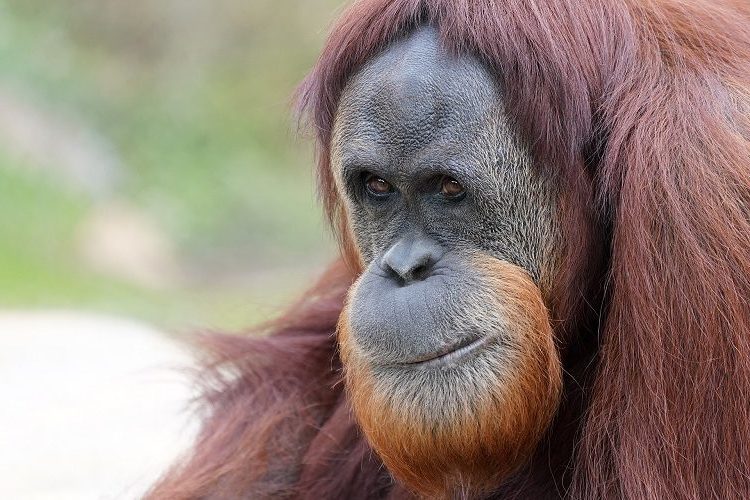Wild orangutan mothers speak up to defend kids

A team of scientists, led by the University of St Andrews, has shown that wild orangutan mothers utilise a unique vocal phenomenon to warn their infant offspring.
The new study, led by researchers from the School of Psychology and Neuroscience and published in Science Advances (Wednesday 14 November), reveals a unique vocal phenomenon in wild great apes with unparalleled affinities with displaced reference, a feature of human language and cognition that describes our capacity to talk about events that took place in the past or will still take place in the future.
Displaced reference is present in all the world’s languages, all daily social exchanges are underwritten by this capacity. As humans, we are constantly reporting and informing one another about things or events that are not present or happening right there and then in the time and place of our dialogues. Despite this universality and prevalence in human language, there have been no reported natural cases of displaced reference in our closest relatives, the great apes. It is very rare in nature and just how such a feature could have emerged from an ancestral system in the human lineage and evolved to become a hallmark of language remains, thus, largely obscure.
The team of researchers found that when exposed to predator-models, Sumatran orangutan mothers temporarily suppressed alarm calls up to 20 minutes until the model was out of sight. Subjects delayed their vocal responses in function of perceived danger for themselves, but four major predictions for stress-based mechanisms were not met. Conversely, vocal delay was also a function of perceived danger for another, an infant, suggesting high-order cognition. The findings suggest that displaced reference in language is likely to have originally piggybacked on akin behaviours in an ancestral hominid.
Lead researcher Dr Adriano Reis e Lameira said: “For the first time, in our study, great apes in the wild have been observed to use displaced reference between each other. Namely, wild Sumatran orangutan mothers weigh the danger posed by predators and wait until it is safe to inform their dependent infants.
“These results show that the vocal communication of wild orangutans is endowed with a feature strikingly similar to displaced reference as found in human language since orangutan mothers only respond vocally about an encounter with a potential predator after the predator is gone. Results show that great ape vocal behaviour is underpinned by a much more powerful high-order cognitive machinery than traditionally presumed. The vocal behaviour is not simply a reflex or conditioned response towards danger but a measured and controlled behaviour.”
The findings suggest that the new communicative capacities may have emerged along the human clade due to a convergence of common vocal behaviour with advanced cognitive capacities as found in great apes.
Category Research